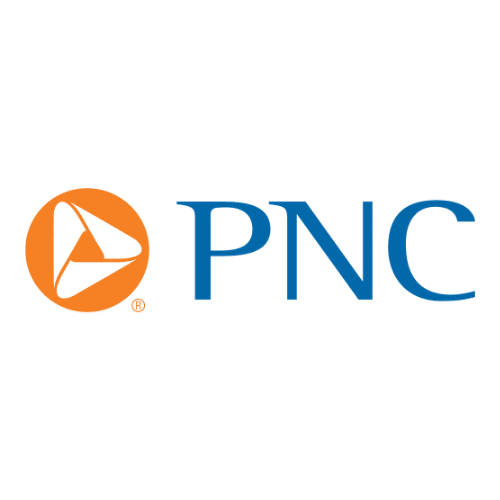10 Best Student Loans For Bad Credit or No Credit
Federal loans are best student loans for bad credit. However, they have a borrowing limit and may not cover the full cost of attendance. We have reviewed the best private student loans for students with bad credit that you can consider to cover the gap in funding.

It is possible to get student loans for bad credit. However, private student loans are hard to get with bad credit and do not guarantee approval.
Federal loans are the only loans that do not require a credit history and allow easy approval to students who have bad credit or no credit. They have low interest rates, with a fixed rate of 5.50% for undergraduates in the year 2023-2024, and come with various long-term repayment benefits too. However, federal loans alone might not be enough to cover all the college-related costs which is why some students may require private student loans.
Private student loans are mostly credit-based and require a credit score of at least 670 for approval. If you have bad credit and require a private student loan, you either need to cosign the loan with a credit-worthy cosigner or opt for loans that do not have minimum credit or cosigner requirements.
With the no cosigner loans for bad credit, however, you will pay much higher interest rates that may be above 6% and go up to around 15%. Moreover, private loans do not have the same benefits as federal loans like loan forgiveness, postponement, and income-based repayment. Therefore, it is best to exhaust all your federal aid options before you turn to private student loans. We have provided a list of the top student loans for bad credit.
How to Get Student Loans for Bad Credit?
- Exhaust Federal options first: Exhaust all your federal aid options first before considering private loans. Federal loans offer lower interest rates and are the best options for students who have bad credit. They also come with many protection plans and loan forgiveness options. Most federal loans do not require a credit check or history. Therefore, if you have bad credit or no credit at all, you can still get federal loans if you can qualify for them through FAFSA. After applying for FAFSA, you will eventually receive a Financial Aid Offer containing all the types of federal aid you are eligible for and can receive.
- Calculate the funds required to fill the gap in funding: You need to assess how much more money you require to cover the full cost of your selected institution before you proceed.
- Compare private lenders: Check out the different private lenders available and compare their rates and terms. Getting a quote from each can help you decide which option would be the best for you in the long term. You should compare them based on repayment terms and options, interest rates, discounts, and fee types associated with each loan.
- Get a cosigner: You will need to cosign the loan with a credit-worthy cosigner if you have bad credit to qualify. Regardless of your credit situation, consigning a student loan can increase your chances of approval and get you lower rates.
- Collect documentation: Collect all the necessary information and required documents before you start the application process. This way, the process will be quick and easy. The lenders usually have a list of what’s required on their websites.
- Apply: You can apply for a loan through the lender’s website. Fill out the online application they have provided and submit the required documents in the correct format. You can also get help from their customer service if you get confused while completing the online application
- Accept the offer: Once you have submitted your application, you will receive a final offer with the rates and terms mentioned. These might be slightly different than the initial quote that you may have received. Make sure to read the terms carefully so you understand the loan and what you are supposed to do. If you agree, then sign the application and the funds will be transferred to you or your institution.
10 Best Private Student Loans For Bad Credit
Most private loans require a good credit score for approval, however, there are some private student loans listed below that are approved based on factors like future income potential or the student’s GPA, but you will pay a higher rate on these. For more reasonable rates and a higher chance of approval, you can opt for the cosigned loans mentioned below.
| Lender | Scholaroo rating | Fixed rates starting (APR) | Variable rates starting (APR) |
|---|---|---|---|

Funding U Great for Students With No Credit Visit website | 6.99 | 7.49 | |

Ascent Great for Loans Without Co-signers Visit website | 4.62 | 5.74 | |

Earnest Great for Lower-Than-Average Credit Score Visit website | 4.45 | 4.99 | |

SoFi Great For Graduate Students Visit website | 4.49 | 4.99 | |

Mefa Great for Co-signer Loans Visit website | 4.89 | 6.99 | |

M Power Great For International Students With No Credit Visit website | 13.98 | N/A | |

Edly Great For Income-Based Private Student Loans With No Credit Visit website | N/A | N/A | |

PNC Bank Great for automated payment discounts Visit website | 4.99 | 5.34 | |

Prodigy Finance Best for studying abroad with no-cosigner and poor credit Visit website | N/A | 11.06 | |

A.M. Money Best for students with high GPA and bad credit Visit website | 7.08 | N/A |

Funding U
Great for Students With No Credit

Ascent
Great for Loans Without Co-signers

Earnest
Great for Lower-Than-Average Credit Score

SoFi
Great For Graduate Students

Mefa
Great for Co-signer Loans

M Power
Great For International Students With No Credit

Edly
Great For Income-Based Private Student Loans With No Credit

PNC Bank
Great for automated payment discounts

Prodigy Finance
Best for studying abroad with no-cosigner and poor credit

A.M. Money
Best for students with high GPA and bad credit
#1 Funding U
#2 Ascent
#3 Earnest
#4 SOFI
#5 MEFA
#6 MPower Financing
#7 Edly
#8 PNC Bank
#9 Prodigy Finance
#10 A.M Money
Federal Student Loan Options for Bad Credit
Federal loans do not require a minimum score and have basic eligibility requirements for approval. You will be required to complete a FAFSA to find out which type of federal aid and the amount you are eligible for.
There are three types of federal student loans for bad credit.
Direct Subsidized Loans:
These loans are only available to undergraduate students who demonstrate financial need. They do not have a credit requirement and the government pays the interest while the student is in school, during the grace period, and in deferment. There is a fixed APR rate of 5.50%, a standard grace period of 6 months, and students have repayment terms of up to 25 years.
Direct Unsubsidized Loans:
Unlike subsidized loans, the government does not pay interest for students in any period on Direct Unsubsidized loans. The interest accrues while the borrower is in school and deferment. This loan is for undergraduates, graduates, and professional degree students and has the same fixed rate as subsidized loans of 5.50%. It comes will all the benefits a subdized loan comes with and also has repayment terms of up to 25 years and a grace period of 6 months.
Direct Plus Loans:
Direct Plus Loans include two types of loans. One is a Parent PLUS loan for the students’ parents with bad credit and the other is a Grad PLUS loan which is available to graduate students. Direct Plus Loans come with a higher fixed interest rate of 8.05%. These loans do not have a minimum credit requirement but they may conduct a credit check just to make sure that the borrower does not have an adverse credit history like bankruptcy in the past 90 days. You can apply with an endorser in case you have any such problems in your credit history.
The repayment terms for PLUS loans are also up to 25 years and it offers all the same benefits that other federal loans come with like loan forgiveness and income-based repayments.
How to Compare Private Student Loans
While doing your research on lenders consider using the tips below to find the best private student loan.
- Find a lender with a lower APR rate: The APR is what you pay above the amount you borrowed. The higher the rate, the more the loan will cost you. So, the best loan would be the one with lower APR rates. Moreover, choose loans with fixed interest rates so they don’t change over time.
- Avoid loans with additional fees: Opt for loans that do not charge any origination, prepayment, application, or late fee to avoid additional costs.
- Find a cosigner to sign the loan with you: Having a cosigner can help you better your chances of qualifying for a private student loan regardless of having bad credit.
- Look for loans with multiple and flexible repayment options: Some lenders offer more flexibility in terms of their repayment terms. Having more flexible and multiple options helps ease the burden off the loan.
- Look for lenders that offer hardship options: There are various options offered by some lenders that can help you in a crisis. A few of these options may include loan deferment if you become unemployed or earn less than a certain amount of yearly income. Other options may even include forbearance, refinancing, and loan forgiveness.
You can calculate your estimated monthly payments for different lenders using the loan calculator given below. You will need the loan amount, the interest rate being offered by the lender you are considering, and the loan term they are offering.
What If You are Denied a Private Student Loan?
In case you are unable to get a student loan due to bad credit or any other reason, there are other options that you can consider.
- Get a Cosigner: A credit-worthy cosigner can help in getting a loan approved if you are having trouble getting one due to bad credit. Upon consigning, they will be equally liable for the loan you both sign for. Even if you are able to get approval for a loan by yourself, adding a credit-worthy cosigner can help get lower interest rates.
- Scholarships: There are many scholarships available for students that can help them pay for college. Scholarships are financial awards or gifts that do not require repayment. They might not cover their full tuition cost but can help you pay off a chunk of them.
- Grants: Grants are like scholarships but are usually government or state-based. The amount you get through grants may not be enough to cover all educational costs, but mixing them up with scholarships and a part-time job can help you pay off a significant chunk of it.
- Part-Time Job: There are many part-time job opportunities available to students now. Some of such jobs pay well too and you can use the money to pay for a part of your tuition. Many of these jobs can be done online from home too which may be helpful for students studying full-time in universities.
- Other Types of Loans: Personal loans are also another type of loan that students can get to pay for college or related expenses. These loans do come with higher rates and may have stricter eligibility requirements. Also, when getting a personal loan, it is important to read the fine print thoroughly to make sure there are no restrictions on what you can spend your loan amount on.
There are also federal loans available to students with bad credit or no credit. In fact, if you can qualify for a federal loan, they are the best option for students with bad credit. You can cover a huge chunk of your tuition using these loans and the rest you can cover with private loans, scholarships, grants, or part-time work.
Income Share Agreements For Bad Credit
In case you don’t find a lender that fits your situation or you don’t get approved for a loan you can consider other options like an income share agreement.
An income share agreement (ISA) is a sort of contract that enables students to get money for higher education while they are enrolled and repay it with a certain proportion of their income once they graduate. Upon signing the income share agreement, the repayment period and income % are decided. There is no interest charged in income share agreements and this is a good option for students that don’t have a good credit score.
The best conditions for ISA are:
- You are not eligible for private student loans and you have used up all of your government loan alternatives.
- You would be subject to hefty interest rates on student loans because of your low credit score.
- An ISA with appropriate terms and a small payment cap is offered by your university.
Your income share agreement’s funder will decide your eligibility, the income share, and the payback term duration. Your income share agreement funder will also assess your qualifications for college funding and the terms based on your professional goals, educational background, course of study, and future plans.
Funding education can be stressful but with the options of loans and income share agreements you will be able to find a solution that fits your unique financial situation.
Ways to Improve Your Credit Score
There are various benefits to improving credit scores like getting approved for more applications, a higher loan limit, and low interest rates. Here are a few easy and practical ways to improve your credit score.
- On-time payment: Because payment history accounts for such a large portion of your credit score, it’s critical that you keep up with your student loan payments. Making on-time payments is one of the best ways to use your student loans to build credit – by being consistent with your payments, you’ll notice your credit score gradually rising.
- Prepaid Credit Card or Secured loan: Another way to improve your credit score is to consider getting a secured loan or a secured credit card. A secured loan requires you to put up collateral in return for the money borrowed, while a secured credit card allows you to make purchases using funds placed into an account that you are responsible for repaying. Both of these options can help build your credit and make it more likely that lenders will approve your application for a private student loan.
- Make numerous years of on-time payments: Your credit score will rise as the average age of your accounts increases. Keeping accounts open for a long time can help your credit score over time. Federal student loans have a standard repayment term of ten years, and private student loans frequently have repayment terms ranging from ten to twenty years. Making student loan payments for that length of time will improve your credit score, especially if you’re new to credit.
- Pay off your debts: Another borrowing behavior that can improve your credit score is paying your debts on time. Consider making a second (small) monthly payment of whatever extra you can contribute if you can afford it. Paying down credit card balances, in particular, can help you lower your credit utilization ratio, which is a key metric in how credit bureaus calculate your score. Working to pay off loans or other forms of debt can also help you learn how to improve your credit score.
FAQS
Can you get student loans with 500 credit score?
Students with a 500 credit score or lower can get federal student loans easily if they are eligible. However, very few private lenders accept applicants with bad or no credit. A.M Money and Funding U are two options to consider. However, most of these non-cosigned student loans for bad credit come with high interest rates.
If you have bad credit and you require a private student loan, the better option would be to co-sign the loan with a credit-worthy cosigner. This will not only help you in getting lower rates but will also improve the chances of loan approval.
Can you get FAFSA with bad credit?
Federal student loans are generally not credit-based. Therefore, students with bad credit or no credit can easily apply for FAFSA to find the type of federal aid they are eligible for.
Do private student loans check credit score?
Most private loans require a credit check. The higher the score is, the easier it gets to get an approval. If you have poor credit or no credit, you can improve your chances of approval by applying with a credit-worthy cosigner. However, there are some lenders that consider other factors more important in determining whether someone will be able to pay back the loan. These lenders may give out loans on the basis of academic achievement, and degree type, and they usually focus on the borrower’s future income-earning potential.
A.M. money private student loans and loans by Funding U do not require a credit score for approval.
What is the minimum credit score required for a private student loan?
Lenders of private student loans often need a credit score of at least 670. You can review our comparison chart to understand which lender works best for you as some may not require any credit score.
What is the easiest student loan to get for students with bad credit?
The easiest loans for such students are those that do not require a credit check nor do they have a minimum credit requirement. Federal loans are a great option in such a scenario. In case you are unable to qualify for federal loans, there are many options for private student loans listed in this post that are easy for students with poor credit or no credit to get.
A few of the private loan options with no credit include loans by Funding U, M Power, and Edly. Other lenders that do not have a high credit requirement include Ascent, Earnest, Prodigy Finance, and A.M. Money.
How can I improve my credit score?
The simplest approach to raise your credit score in the short term is to pay off your current bills, including paying off any outstanding loans, as well as the balances on your credit cards. Building a solid payment history is ultimately the most efficient strategy to raise your credit score.
Are there student loan options for parents with bad credit?
Yes, parents who have bad credit can get a federal Parent PLUS loan to pay for their child’s education. In case there is an issue in getting approved due to poor credit, they can add an endorser with good credit to get approved. Many private lenders also offer student loans to parents but they usually have a minimum credit requirement. Parents can cosign such private loans with a creditworthy cosigner for approval.












